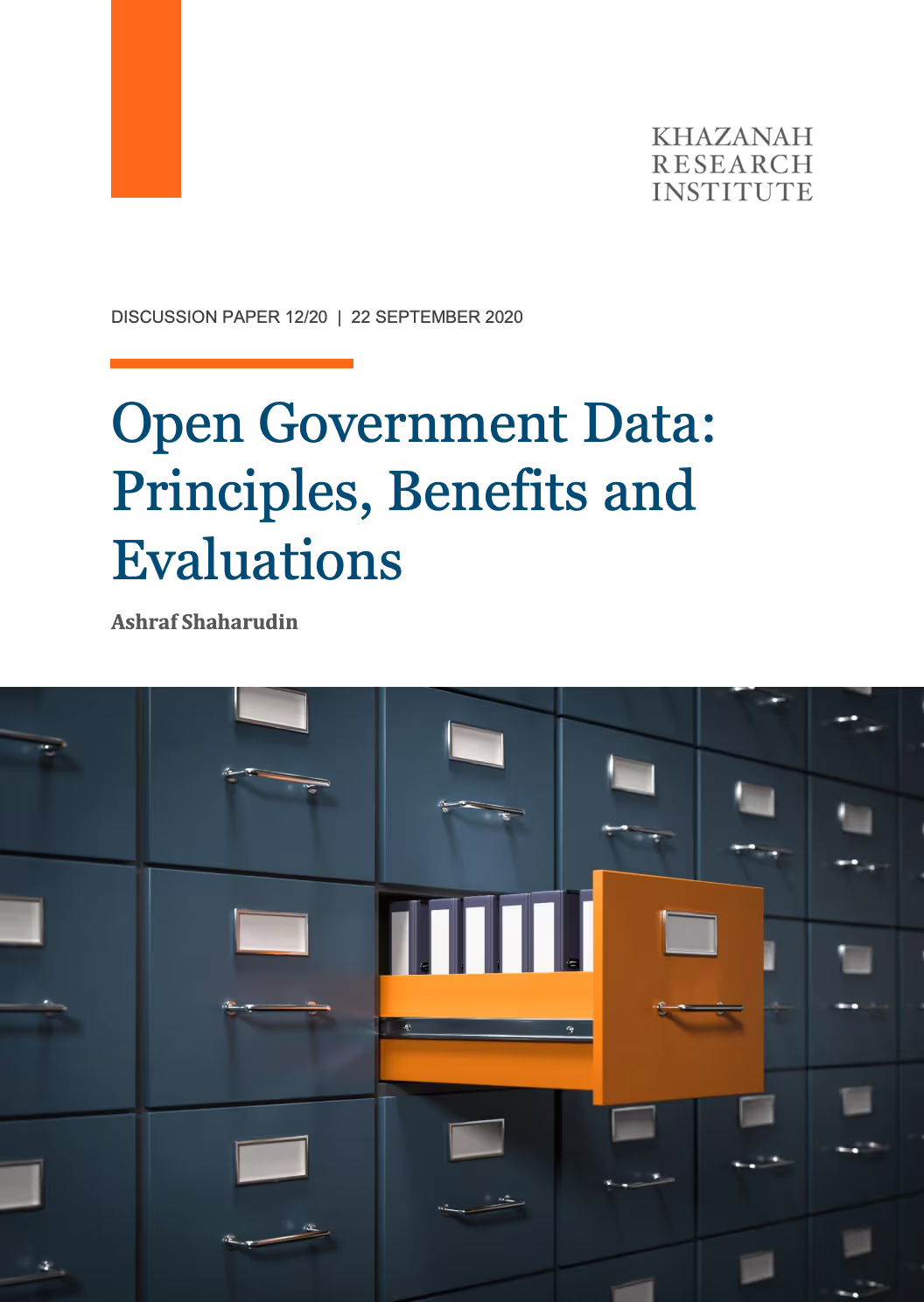
- This paper discusses the principles, benefits and evaluations of open government data. While the concept of open data is not only applicable to government data, this paper focuses on government data since the government collects and holds a large volume of data using public funds; therefore, it is imperative to maximise the potential value of this data. Besides, open government data is one of the Malaysian government’s focus areas as stipulated in several policy documents. - By consensus, open data are digital data that are free from legal and technical constraints to be used by anyone at any time from anywhere. Based on a survey of multiple authoritative references, there are seven important features of open government data, which are complete, granular, timely, legally and technically accessible, machine-processable, non-discriminatory and non-proprietary. - Malaysia did not perform well in all of the established global open data evaluations. Malaysia’s open data level is behind Indonesia, the Philippines and Singapore as well as many other developing countries. Malaysia’s scores have also not improved significantly over the years, reflecting little progress in making government data more open. - Opening up government data would benefit all segments of society. The private sector could use the data to make informed business decisions and offer better products and services to consumers. Accessible government information would allow better policy advocacy and improve governance. Researchers could utilise data to generate knowledge for the advancement of society.















